Becoming a surrogate is a deeply personal and generous act — and when you’re doing it for someone you love, like a close friend, the experience can be even more meaningful. But while offering to carry a child for a friend may feel like a simple decision from the heart, the reality is that surrogacy involves complex legal, medical, and emotional steps — even (and especially) when you’re doing it for someone you already trust.
Here’s what you need to know about how to become a surrogate for a friend — and how to make sure it’s a safe, smooth, and rewarding journey for both of you.
✅ 1. Know the Type of Surrogacy You’re Pursuing
There are two main types of surrogacy:
- Gestational surrogacy: The surrogate carries a baby created via IVF using the egg and sperm of the intended parents or donors. The surrogate has no genetic link to the child. This is the most common — and legally safest — type of surrogacy, especially for arrangements between friends.
- Traditional surrogacy: The surrogate uses her own egg, making her the biological mother. This method is legally more complex and emotionally riskier, and is not commonly recommended for friend-to-friend arrangements.
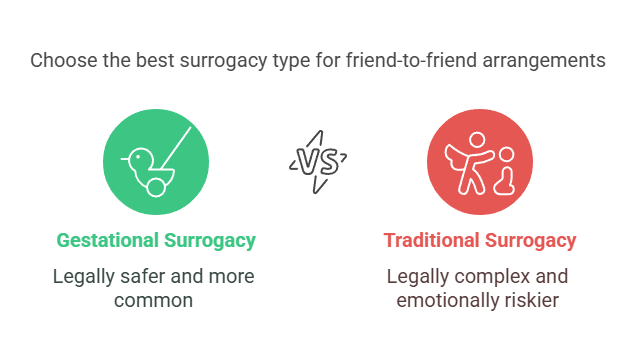
For most people, gestational surrogacy is the clear choice.
More : How to Become a Surrogate Mother in Houston: Requirements & Process
🧪 2. Complete Medical & Psychological Screening
Even if you’re doing this out of love, you’ll need to go through full medical and psychological screening before being approved to carry a pregnancy for someone else.
These screenings typically include:
- A review of your medical and pregnancy history
- Blood work, pap smear, and reproductive health assessments
- A psychological evaluation to ensure you’re emotionally prepared for surrogacy
- Screening of the intended parents, too
These evaluations help protect you, the baby, and your friend.
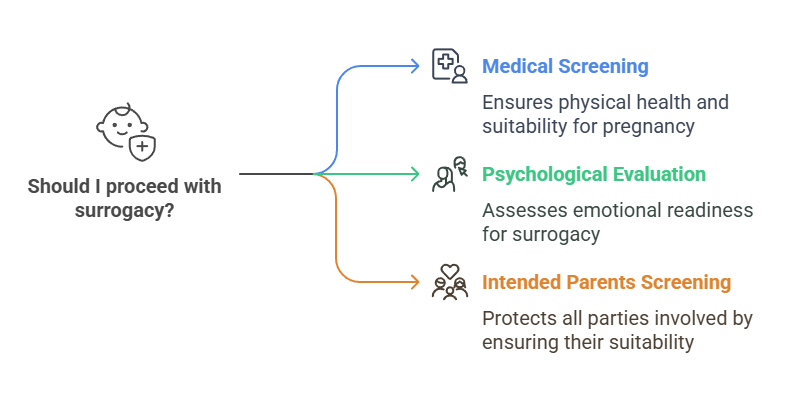
⚖️ 3. Legal Contracts Are a Must — Even Between Friends
You might trust your friend completely, but legal contracts protect both parties and prevent misunderstandings down the road. A surrogacy lawyer will help you draft an agreement that covers:
- Medical decisions and consent
- Compensation or reimbursement of expenses
- What happens in case of miscarriage, multiples, or medical complications
- Birth plan expectations
- Post-birth contact and roles
This step is required in most states and is essential for establishing legal parentage for the intended parents.
More: Preparing for Parenthood: Practical Tips for Intended Parents in the Surrogacy Process
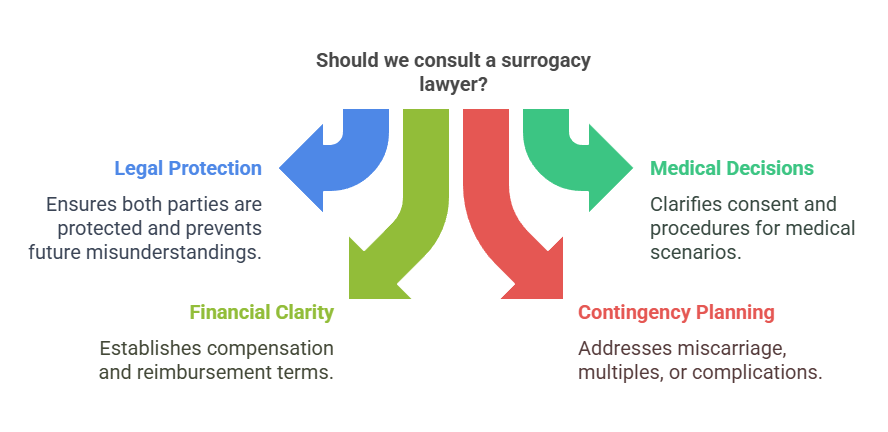
💬 4. Have Open, Honest Conversations
Before any medical steps begin, you and your friend should talk openly about your expectations.
Some questions to explore:
- How involved do they want to be during the pregnancy?
- Will they attend ultrasounds or appointments?
- What role will you have in the child’s life after birth (if any)?
- How will you both handle emotional moments — both joyful and difficult?
Clear communication can protect your friendship and help build a stronger foundation for the journey ahead.
More: Health and Wellness Tips for a Successful Surrogacy Journey

💸 5. Discuss Compensation and Expenses
Even if you’re not accepting traditional “compensation,” most surrogates receive reimbursement for pregnancy-related costs like:
- Maternity clothes
- Prenatal vitamins
- Lost wages (if applicable)
- Travel to and from medical appointments
- Health insurance premiums or copays
This should be clearly outlined in your legal agreement and handled through an agency or attorney to avoid awkward financial tension.
More: Compensation for Surrogate Mothers: What You Should Know
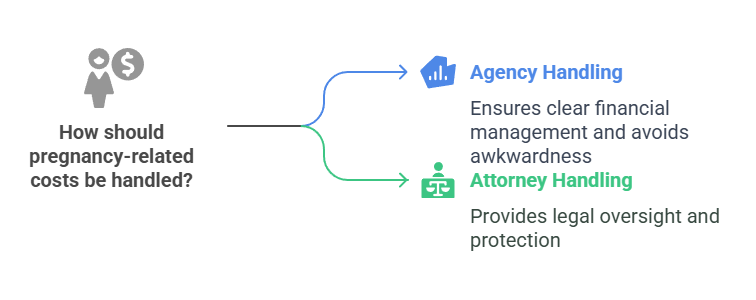
🧬 6. Understand the Medical Process
As a gestational surrogate, you’ll go through a medical protocol that typically includes:
- Fertility medications to prepare your uterus
- Hormone injections to support implantation
- An embryo transfer procedure (usually painless and outpatient)
- Follow-up ultrasounds and monitoring to confirm pregnancy
The entire process is done under the supervision of a fertility clinic.
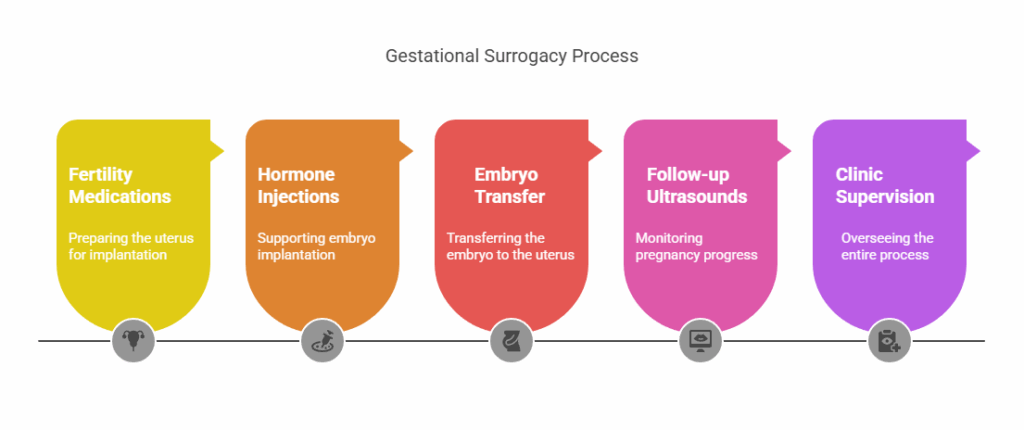
🤰 7. Pregnancy & Delivery Planning
Once you’re pregnant, regular checkups will be scheduled, and your friend may want to be involved. It’s important to discuss:
- Will they attend appointments with you?
- Do you want them in the delivery room?
- What happens immediately after the birth?
Some surrogates want space; others find it meaningful to share these moments. Every friendship is different — there’s no one right answer, just what’s right for you both.
More: From Start to Finish: A Surrogate Mother’s Guide to the Surrogacy Timeline
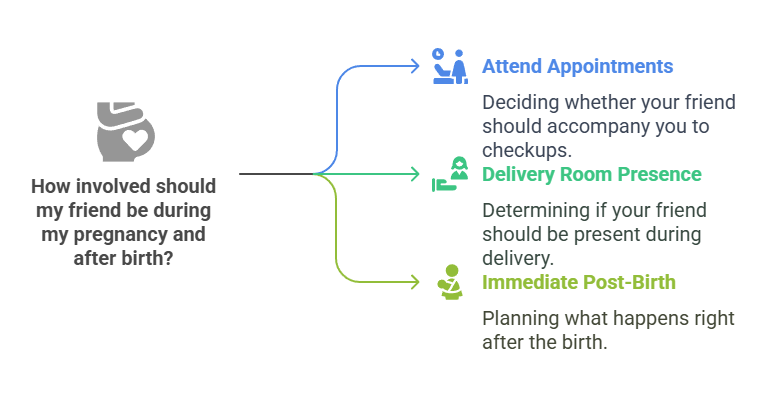
🍼 8. What Happens After the Baby Is Born?
Once the baby arrives, you’ll be recovering physically and emotionally — and the intended parents will be beginning their new life as a family.
Expect:
- Legal confirmation of parentage (if not already completed before birth)
- Emotional highs and lows as you transition out of the pregnancy
- Continued communication — or boundaries — depending on what you both agreed
Postpartum support, including counseling, is a great idea and is often covered in the surrogacy plan.
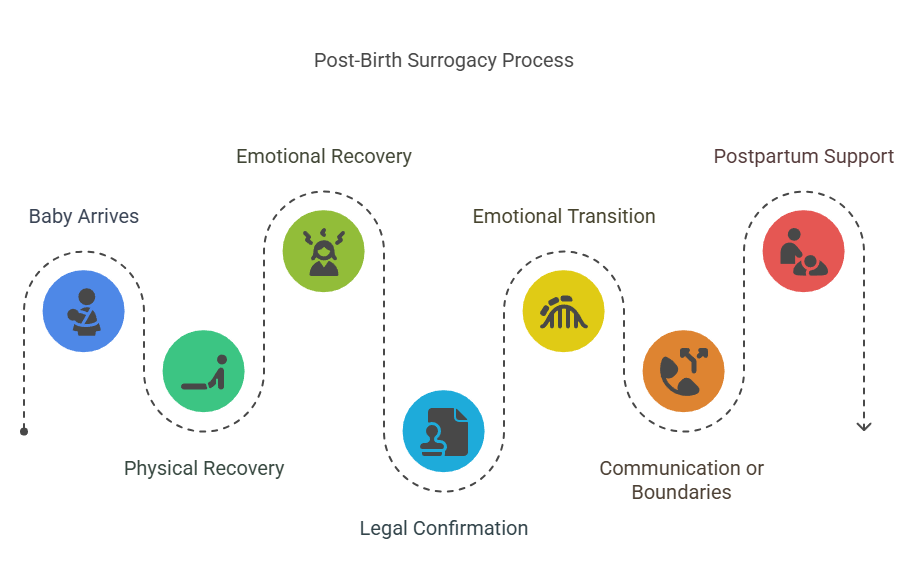
🌟 Is Surrogacy for a Friend Right for You?
Before you commit, take time to reflect:
- Am I emotionally ready to carry a child that isn’t mine?
- Can I handle the physical demands of pregnancy again?
- Is our friendship strong enough for this journey?
- Am I prepared for the legal and medical processes?
If you answer yes to these questions — and your friend is on board — you may be the perfect match.
More: Becoming a Surrogate: Is It the Right Choice for You?
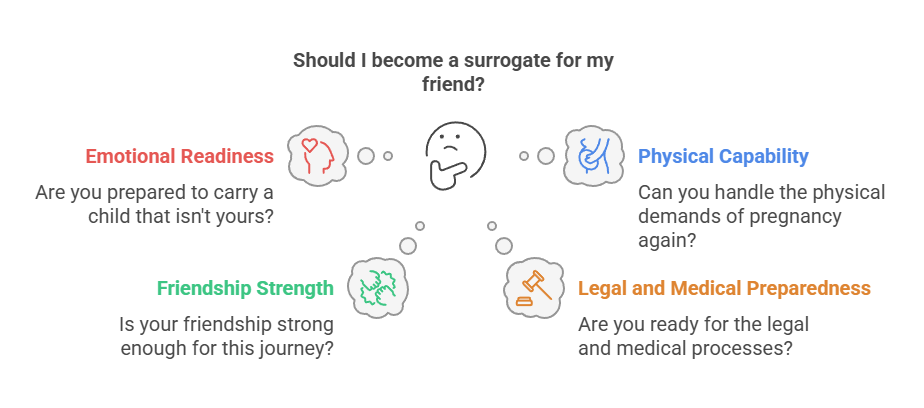
💬 Final Thoughts
Being a surrogate for a friend is one of the most powerful acts of love and generosity you can offer. But it requires care, structure, and support from professionals — even when the bond between you is already strong.
If you’re considering this path, talk to a surrogacy agency, fertility doctor, and lawyer. With open hearts and the right guidance, surrogacy can bring two lives — or more — closer together in beautiful, unforgettable ways.




